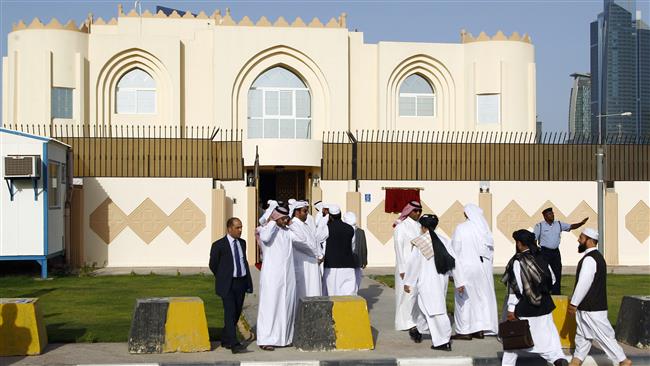
RNA - Abdullah Anas, an Afghan peace mediator, told the Middle East Eye(MEE) news portal on Friday that he was bewildered by the Saudi-led bloc’s claims that Qatar backs extremism by hosting the Taliban.
“If Qatar is hosting the Taliban for talks aimed at reconciling the warring factions in Afghanistan, this initiative was established in Saudi Arabia before,” he said.
“There were also some rounds in the Emirates. So if Qatar is accused of hosting terrorists, someone hosted the same ‘terrorists’ before this,” he added.
The Taliban set up their so-called political office in Doha in June 2013, but the militant group closed the center less than a month later.
Another informed source, whose name was not mentioned in the report, confirmed Anas’ remarks, saying that the Taliban’s Doha office opened after Saudi Arabia failed to establish an effective mechanism for liaison and communication with the militant outfit.
The US and Britain turned to Qatar to liaise with the Taliban because of the failure of the Riyadh regime, the source pointed out.
Additionally, Al Jazeera journalist Hashmat Moslih said that the Taliban chose Qatar to host their office as a "neutral" country to the war on Afghanistan.
"Although Saudi Arabia wanted to host the Taliban, the Afghan government would have objected because of the Saudis' close ties with the Taliban,” he noted.
On July 31, The New York Times published leaked emails from UAE Ambassador to Washington Yousef al-Otaiba, which revealed that the Persian Gulf country had also sought to host the Taliban office.
According to a leaked email from Otaiba’s account, he received an "angry call" from Emirati Foreign Minister Abdullah bin Zayed Al Nahyan complaining that the Taliban had ended up in Qatar and not the UAE.
Amid growing tensions with Qatar, Otaiba recently said, “I don’t think it is a coincidence that inside Doha you have the Hamas leadership, you have a Taliban embassy, you have the Muslim Brotherhood leadership.”
Back in June, Saudi Arabia, Egypt, Bahrain and the United Arab Emirates imposed a trade and diplomatic embargo on Qatar, accusing Doha of supporting terrorism.
They presented Qatar with a list of 13 wide-ranging demands and gave it an ultimatum to comply with them or face unspecified consequences.
The demands included shutting down the broadcaster Al Jazeera, removing Turkish troops from Qatar’s soil, scaling back cooperation with Iran and ending ties with Egypt’s Muslim Brotherhood movement.
Doha, however, denounced the demands as unreasonable, refused to meet them, and said that they were meant to force the country to surrender its sovereignty.
847/940